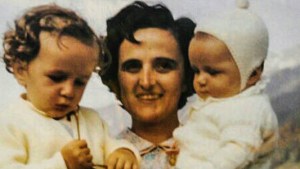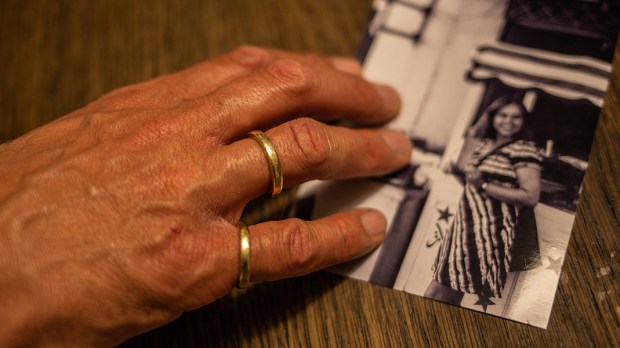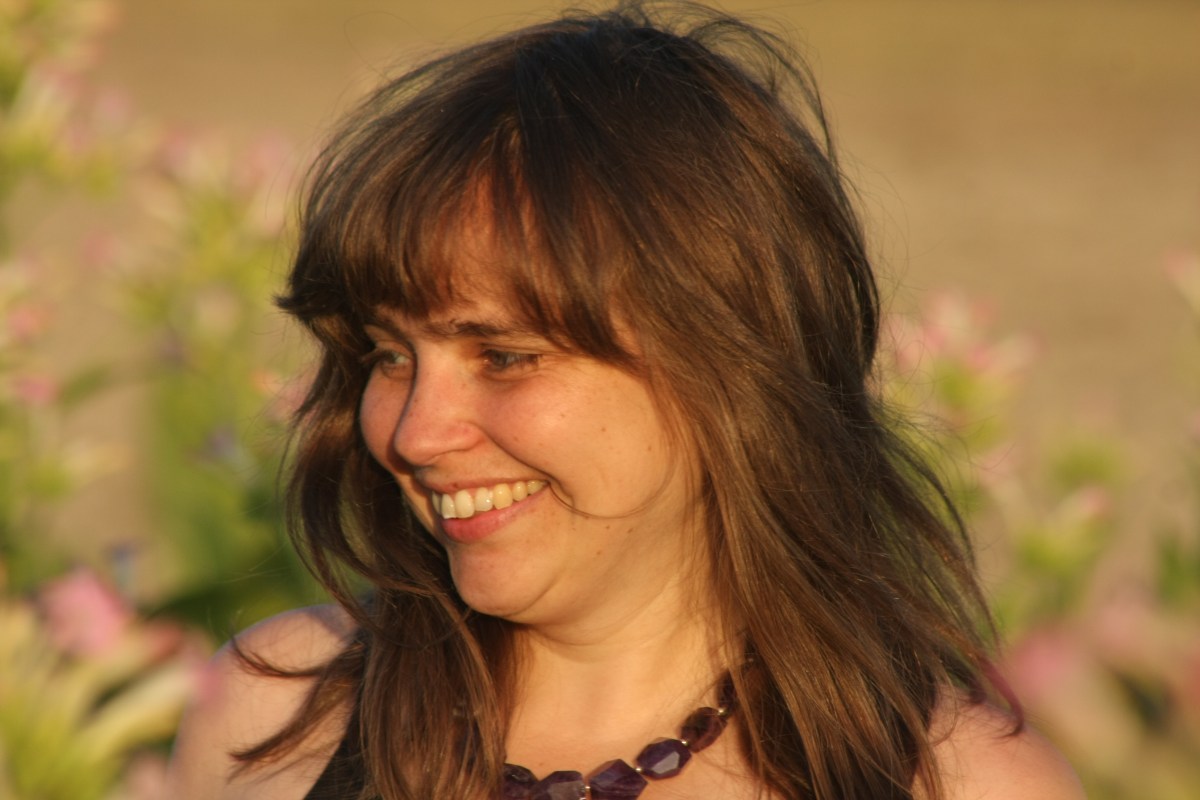Dr. Agnieszka Pisuła — a psychiatrist, psychologist, and psychotherapist, died from cancer on March 27, 2018, on the Tuesday of Holy Week. She had opted for a limited therapy regime in order to protect her unborn child, who was born healthy. We met with her husband two weeks after her death, in their home. We give you this moving testimony of love that goes above and beyond.
Aleteia: Tell me about your wife. What was she like?
Dr. Tomasz Ginter: She was always smiling. She always looked like she was smiling, even when she was upset with me. I had to learn to figure out when she was upset, and that took some time. That smile can be seen in almost all of her photos.
There are many opinions about your wife on the internet — not only saying that she was a great doctor or therapist, but stressing that she was warm, wholehearted, and interested in her patients; that she saw more than an average doctor does. Was she like that at home as well?
Aga was a psychologist and doctor with two specialties — adult psychiatrist and pediatric and youth psychiatrist. Sometimes she just took one look at a person, and she knew the diagnosis. It wasn’t only in her area of specialty. One day she diagnosed Lyme disease on the phone in a friend’s daughter, which went undiagnosed by other doctors for two months.
There were times when she lived and breathed her patients’ problems; they called her often. In the beginning, I used to get angry about it, but ultimately, I admired her for it.
I remember when our oldest son was born. Aga’s water broke, and we were all packed and ready to go to the hospital. I waited with the car keys in my hand, and she was still in the kitchen finishing her write-up about a patient. She gave birth half an hour later.
She always gave birth quickly. She used to say she could never be in labor for 15 hours, like some other women, because she would get bored and leave.
How did you find out about the diagnosis?
Aga was in her fourth pregnancy. We found out at the end of November. First, they said that there was a considerable probability of a tumor, and then we found out it was a sarcoma. Aga started treatment after the New Year.
Did the doctors suggest terminating the pregnancy?
One doctor mentioned it. When we came to her with the diagnosis — and this was not our first medical visit with her — she proposed with great emphasis that we seriously consider that solution. This was the 19th, maybe the 20th week of the pregnancy, so she recommended hurrying up with all the diagnostic tests, so we could do it before the 22nd week.
We were shocked that she never offered to do an ultrasound. She only examined Aga at her request. My wife put on a good face in a bad situation, courageously. But she cried after we left the office. Somehow, I didn’t understand all of it at the time.
Is it possible to prepare for such a situation? After all, you knew what that meant, what would happen if you decided not to end the pregnancy.
I suspect Aga had a much greater understanding than I did. But she decided, nonetheless, to fight the disease. Very quickly we worked with a foundation that took care of Aga till the end. We were surrounded by examples of many mothers who had cancer, survived, and gave birth to healthy children.
At the time of the diagnosis, we heard that Aga had a malignant sarcoma in her lung, and nowhere else. It’s based on that information that we made our decisions. Her chemotherapy was milder because of the pregnancy.
We were hopeful the entire time, but our hope was systematically undermined by further diagnosis, especially by the last MRI of her head, which showed 20 metastatic points. I suspect she knew then that the situation was very serious. But she considered that it didn’t change anything; that we should keep on fighting.
During the funeral sermon, Archbishop Hoser stressed that your wife — whom he met three weeks before her death — was incredibly calm and trusting, and that she had a joy inside her that can only be understood through the perspective of faith.
Aga really was hopeful all the time and lived normally. In the beginning, she laughed that people were disappointed when they came to visit us because they expected her to be like a zombie, and yet she looked the same as always.
Even after chemo, when she lost her hair, nothing else changed. She would say, until the very last week (because a week before her death she had three epileptic seizures),that if she didn’t know the diagnosis, then everything would be just as it always has been; somatically, nothing was happening. She was physically capable until the last week.
So nothing changed in your daily life. But did you notice any changes in her spiritual life?
What changed was that everything was more. Aga was always a pious person, much more so than me — she was the one who brought me back to the Church, in a very wise way, through encouragement and example.
We prayed more, we prayed the novena to Our Lady of the Rosary, but I think that nothing changed in her religiosity. She believed as always. Hers was a calm, sure faith, without any mystical experiences, but full of comforting certainty that God loves us, that He will listen to us, and that we should accept whatever He gives us.
Many people cannot believe that God is good at moments like the one your family experienced.How did you manage not to lose faith?
Because it is hard to believe, you just have to accept it. Our younger son asked why God wanted to kill Mommy. I’m struggling with explaining to him that it’s not like that.
Without God, nothing would make sense. There was a person, that person is no more, the end … Without a longer, eschatological perspective (of the afterlife) you would just sit down and fall apart. The acceptance that God exists, with all the consequences of the fact that we believe in Him, also assumes unconditional trust, which is difficult to come by in such a situation, but that’s what gives further sense to our lives.
You wear two wedding rings …
One is mine, the other is my wife’s. I put it on in the hospital when I was saying goodbye. Her body was being taken away to the morgue, and I was told to take all of her personal belongings. I took her wedding ring and put it on the first place that came to mind, and now I wear it. It will probably stay there.
Many people think your wife died like a saint. Many compared her to St. Gianna Beretta-Molla — she had the same number of children, was the same age, and the same profession. What do you think about that?
We knew the story of Beretta-Molla, but I kept telling myself that because of those similarities Aga doesn’t have to worry.After all, why would God need the two of them? We would laugh about it.
But in fact, this saint accompanied us during the illness. We went to the church where her relics are held, and there Aga found a translation of one of St. Gianna’s letters to her husband. I read it and decided that we are pagans compared to them! It was clear that in their family God was really first; she appealed to him in ordinary daily things. So I kept telling Aga, “See, God takes saints, you don’t have to worry.”
Bogna’s (our youngest daughter) middle name is Joanna (Gianna in Polish), after the saint. The hospital chapel was named after St. Joanna … We prayed a novena to her. And in the beginning, when we got the diagnosis, we also received her relics to take home.
Frankly, I was a little scared of that saint. She presented the perspective that things might end badly. I had a very ambivalent attitude toward her, but at some point, I did realize that I have to say, “Thy will be done,” that it’s God who decides.
Although, of course, we wanted to avoid this fate.
When you first met St. Gianna, you told your wife that she had a long way to go to be like her. Do you still think that?
No one is a prophet in his own home; this perspective of sanctity is really difficult to talk about for me. Of course, I would be incredibly proud if it turned out that I shared my life with a saint. On the other hand, I feel, and this is a rather selfish feeling, that I wouldn’t be able to rise to the role of a husband of a saint because I have a very, very long way to go before becoming a saint!
When I look back from the perspective of time, I notice some things. For example, Aga never fought with people, even those who were mean to her — I would get angry, and she just did her own thing. Also, Aga never hurt anyone, and other people confirm that.
Our friend, also a doctor, told me that at the exact time Aga was dying, she had this feeling of being deeply immersed in God’s love. She felt like she was incredibly loved by God, almost absorbed by that love. She was at home then. Only when I called her with the news that had Aga died, she understood what that meant.
The night that Aga died, her doctor had a dream, in which she saw Aga all happy in the sunshine on a meadow full of flowers.
The priest who prayed for Aga’s resurrection after her death also told me he had a vision of Aga all happy wrapped in Christ. He said he never had such a happy vision of a person he prayed for.
This is what can be said objectively. What happened at the funeral is also an objective sign. There was an amount of flowers like you never see at ordinary funerals. An old gravedigger asked me what important person was being buried, because he had never seen so many people. The flowers had to be arranged along the walkway, because they couldn’t all fit by the grave.
When you knew how this story might end, did Agnieszka try to prepare you and the children?
Honestly, Aga protected us all, so she didn’t tell the children she was dying. I myself didn’t believe until the last moment that she would die. I even tried to resuscitate her. From the beginning, I never quite grasped the gravity of the situation.
During her illness, we had many positive signs from God, testimonies, assurances that things would be fine. I kept telling myself that God cannot be so mean and false, that He would give us so many signs of hope and not let it end badly. I didn’t believe that Aga would die.
But today I believe that God in His wisdom protected me from that awareness, because if I had known from the beginning how this would end, I would’ve cracked, and I wouldn’t have been able to be as supportive as I was for her. I wouldn’t have been able to take it, and then she would have had to comfort and support me, instead of the other way around.
I suppose I was spared due to my defects and imperfections. That is to say, logically thinking — if logic applicable here at all, but it has to be because God gave us brains and logic for something — God was protecting me until Aga’s death.

Read more:
Prayer to St. Gianna for healing of complications in pregnancy

Read more:
She wasn’t born a saint, but became one day by day: Rome launches cause for Chiara Corbella


